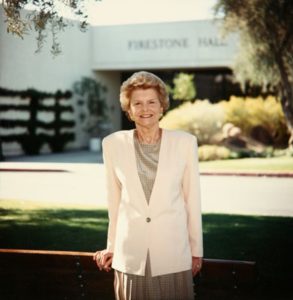Rationales and Excuses Used to Avoid Going to drug rehab:
Perhaps one of the biggest fears of persons contemplating going into treatment for addiction are the ideas of stigma and shame. In Western Culture there are still a lot of misconceptions regarding addiction. Some people still look at addicts as being weak-willed and morally reprehensible individuals. They still believe that the failed “Just Say No” approach to addiction is a viable approach. An addict seeking treatment is usually at the bottom of their rope and may just say no as they use their next drink, pill or fix. They have lost the power to choose whether to use or drink. This can explain why people make so many excuses to avoid drug rehab.
This fear of stigma and shame is a real concern. One may fear repercussions from their spouse, boss, extended family, friends, colleagues, religious organization, educational facilities or other sources of potential condemnation. These fears when weighed against the prospect of becoming a sober member of society may lessen. Actions speak louder than words and our sober demeanor and attitude, after completing drug rehab do help to dispel this negative view.
The story of former First Lady Betty Ford is a prime example of how something good and praiseworthy can rise out of addiction is an excellent example. Mrs. Ford was faced with an intervention by her family regarding her excessive use of alcohol and pain medication. Think of the damage this shame and stigma could bring and be detrimental to a First Lady and her husband, the President of the United States!
Mrs. Ford did go to treatment and remained sober until her death.

Out of this one person’s pain and suffering came great purpose for her to establish the Betty Ford Treatment Centers. There are now approximately 18 centers in the United States and myriads of people have begun their recovery journey in these facilities. This is all due to one single woman who became willing to go to treatment and apply the program of recovery to her life. Granted we are not all persons with that level of a profile in society. But recovery from our pain and suffering can bring real meaning and purpose to our lives as well as benefit others.
It has been said among addiction specialists that defiance (or making excuses to avoid treatment) is perhaps the chief characteristic of an addict. In an addict’s world the abnormal becomes normal. It becomes normal to lie, cheat, steal, blame others for our misery, to be become argumentative, unreliable, deceitful and two-faced, ignore our children, practice infidelity or lie (not all inclusive). It is hard to admit that our addiction is causing any problems in our lives or the lives of others, even when we know the truth. The addict will go to great lengths to protect what they perceive is their right to use and drink as they please. Ill health due to drugs and alcohol will often be blamed on a need for relaxation (while using) or of stressful situations, often brought on by practicing our addiction. The addict believes that all he or she needs is a vacation or to just not be bothered by anyone about their addiction. They try to defy any attempts to get them to take responsibility for their self- seeking actions or omissions of responsibilities.
This is one of the main reasons an addict will make excuses to avoid drug rehab and accountability at all costs.
The day of reckoning will eventually come with the intrusion of the spouse, employer, children, law enforcement, creditors, mental health workers, drug dealers, etc. The person caught up in active addiction will still try to make others believe that they could stop if they wanted to. However, they see no need to stop as they are marshaling all of their denial resources to avoid the truth of their addiction and behavior.
Another fallacy among practicing addicts is that this time their spree will be different. They will be able to use successfully and enjoy themselves while being the life of the party. They are constantly chasing the illusion of their first high when they were able to achieve a level of comfort and well-being unparalleled in any other way. The addict begins to build a tolerance to drugs and alcohol which requires more of a substance to achieve a particular state or high. This increased tolerance level can lead to overdose and possibly death as the addict chases this illusive high.
Other reasons to make excuses to avoid treatment are (not all inclusive):
- Unable to take time off work.
- I am not in need of that level of intervention.
- I just need a change of scenery.
- I need to change my drug of choice.
- I need a new set of friends (other practicing addicts) that understand me.
- I am not hurting anyone.
- I have not had a DUI (yet).
- My family expects too much of me.
- I enjoy my addiction.
- My financial situation is not too bad (yet).
- I have not been to jail (yet).
- I can manage my hangovers most of the time.
- I drive, dance, sing, etc. better when under the influence.
- I am more sociable when I use (lowered inhibitions).
- I just need a different spouse/partner.
- I can control and enjoy my using.
- Everyone lies.
- I am just misunderstood.
If you or someone you know is struggling with substance abuse disorder call us at New Day Rehab Centers in Lancaster California.



